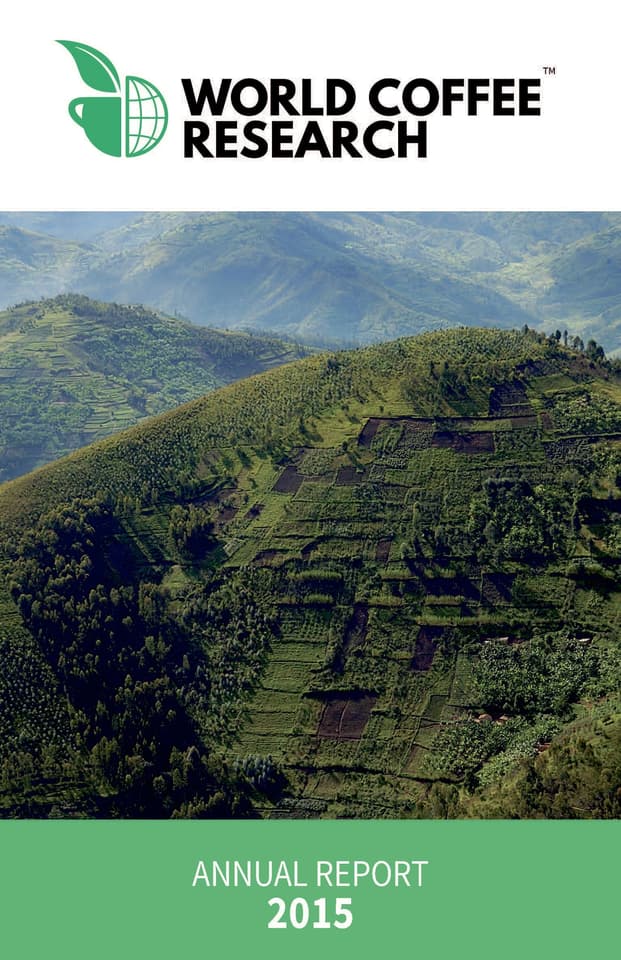
Annual Report 2015
In 2015, World Coffee Research completed projects that will be transformative for the future of coffee
In 2015, World Coffee Research completed major projects with results that will be transformative in ensuring the future of coffee. Highlights of our work this year include:
- Advancing the science of coffee flavor with the launch of the World Coffee Research Sensory Lexicon
- Creating the first new varieties in our breeding program, which aims to produce coffee plants that will be disease resistant and have high cup quality and productivity
- Establishing the WCR Core Collection, a group of 100 of the most genetically diverse Coffea arabica coffees from the CATIE germplasm collection, an essential new reservoir
of genetic diversity for coffee breeders for decades to come - Publishing a major study that describes the main climates that support coffee cultivation and pinpoints which of these zones is most vulnerable to climate change
- Launching a network of on-farm demonstration trials in Africa and Central America that will bring high-performing varieties into farmer fields and show with hard
data how they can improve farmer profitability - Establishing a brand-new WCR research farm in El Salvador, which will become our headquarters in Central America